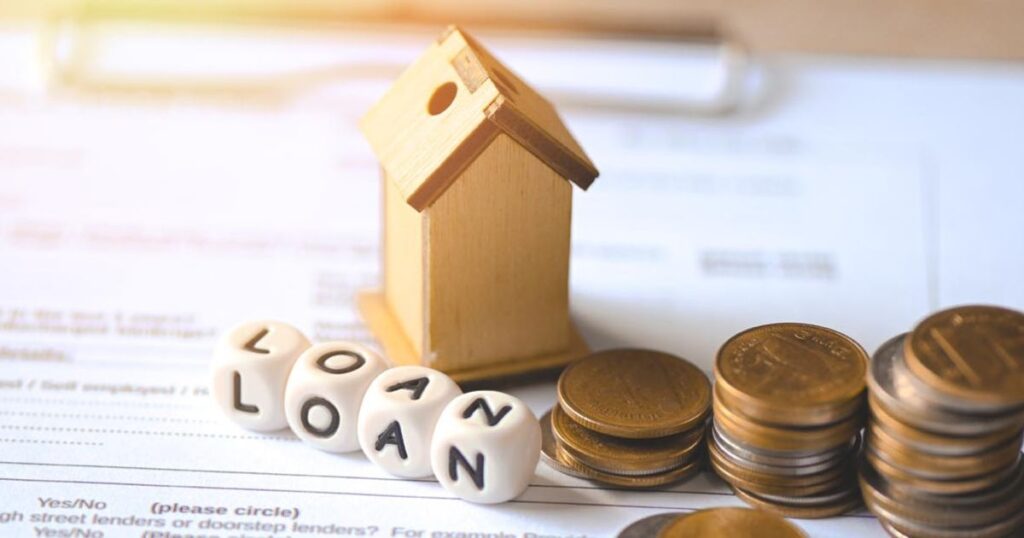Taking out student loans can be a necessary step toward achieving your educational goals, but it’s crucial to understand the factors that can cause your total loan balance to increase over time.
Failing to grasp these elements can lead to a snowballing debt burden that becomes increasingly difficult to manage. According to the latest statistics from the Federal Reserve, the average outstanding student loan debt in the United States currently stands at a staggering $38,147 per borrower.
This blog post will delve into the various components that contribute to the growth of your student loan principal, shedding light on interest accrual, capitalization, fees, deferment periods, and repayment plan choices. By understanding these factors, you’ll be better equipped to make informed decisions and implement strategies to minimize the long-term costs of your student debt.
What Increases Your Total Loan Balance? How Your Student Debt Can Grow
Your total loan balance is not a static figure; it’s a dynamic amount that can fluctuate based on several factors. Interest charges, fees, deferment periods, and your chosen repayment plan all play a role in determining whether your debt grows or diminishes over time.
1. Interest Accrual
One of the primary drivers of loan balance growth is interest accrual. Interest is essentially the cost of borrowing money, and it accumulates daily on your outstanding principal balance. The higher your interest rate, the faster your debt will grow if you don’t make payments to cover the accruing interest.
For example, let’s say you have a $20,000 student loan with a fixed interest rate of 6%. If you don’t make any payments, the interest accrued after the first year would be $1,200 (6% of $20,000), and your total loan balance would increase to $21,200.
It’s important to distinguish between subsidized and unsubsidized loans when it comes to interest accrual:
- Subsidized loans: The government pays the interest while you’re enrolled in school at least half-time, during the grace period after leaving school, and during periods of authorized deferment.
- Unsubsidized loans: Interest accrues from the time the loan is disbursed, and you’re responsible for paying the interest throughout the life of the loan.
2. Interest Capitalization

Interest capitalization occurs when unpaid interest is added to your principal balance, a process that can significantly increase your total loan balance over time. This typically happens when you enter repayment after a period of deferment or forbearance, or when you leave school and your grace period ends.
For instance, let’s say you have a $20,000 unsubsidized student loan with a 6% interest rate, and you defer your payments for one year while in school. During that year, the interest that accrues ($1,200) will be capitalized (added to your principal balance) when you enter repayment. Your new loan balance would then be $21,200, and future interest charges would be calculated based on this higher amount.
Capitalization can have a compounding effect, as interest will now accrue on a larger principal balance, resulting in higher overall costs. To avoid this, it’s generally recommended to pay any accrued interest before it capitalizes, if possible.
3. Fees
In addition to interest charges, various fees can contribute to the growth of your total loan balance. Common fees associated with student loans include:
- Origination fees: These are charged by the lender when the loan is disbursed and are typically a percentage of the total loan amount.
- Late payment fees: Most servicers charge a fee (often around $25-$50) if you make a late payment.
- Returned payment fees: If a payment is returned due to insufficient funds, you may be charged a fee.
While these fees may seem relatively small, they get added to your principal balance and accrue interest over time, further increasing your overall debt burden.
To minimize fees, it’s essential to make your payments on time, set up automatic payments if possible, and carefully review the terms and conditions of your loan agreements.
4. Deferment, Forbearance, and Grace Periods
Deferment and forbearance periods can provide temporary relief from making loan payments, but they can also contribute to the growth of your total loan balance. Here’s how:
- Deferment: During periods of deferment, you’re allowed to temporarily postpone making payments on your loans. Subsidized loans do not accrue interest during deferment, but unsubsidized loans continue to accrue interest, which can be capitalized when you re-enter repayment.
- Forbearance: Forbearance is a period during which your monthly loan payments are temporarily suspended or reduced due to economic hardship. Interest continues to accrue on all loans during forbearance periods and is typically capitalized when you resume making payments.
- Grace periods: After graduating or dropping below half-time enrollment, most student loans provide a grace period (typically 6-9 months) before you must begin making payments. However, interest may still accrue on unsubsidized loans during this time, increasing your total loan balance.
While deferment, forbearance, and grace periods can offer short-term relief, it’s important to understand that interest will likely continue to accrue, potentially increasing your overall debt burden.
5. Your Repayment Plan
The repayment plan you choose can also impact the growth of your total loan balance. Longer repayment terms may offer lower monthly payments, but they also result in paying more interest over the life of the loan.
For example, consider two borrowers with $30,000 in student loans at a 6% interest rate:
- Borrower A chooses the standard 10-year repayment plan and will pay a total of $40,905 over the life of the loan.
- Borrower B opts for an extended 25-year repayment plan and will pay a total of $64,641 over the life of the loan.
While Borrower B has a lower monthly payment, they will pay nearly $24,000 more in interest charges due to the longer repayment term.
It’s essential to carefully consider your repayment options and choose a plan that balances affordability with minimizing long-term interest costs.
More Post:
Is Affiliate Marketing A Pyramid Scheme?
How to Reduce Your Loan Costs

While various factors can contribute to the growth of your total loan balance, there are strategies you can implement to minimize the long-term costs of your student debt:
- Pay interest before it capitalizes: If possible, make interest payments during deferment or grace periods to prevent the interest from being added to your principal balance.
- Make payments during deferment or forbearance: Even if you can’t afford the full monthly payment, making interest-only payments during these periods can prevent your balance from growing.
- Choose an income-driven repayment plan: If you’re struggling to make your monthly payments, income-driven repayment plans can offer more affordable payment amounts based on your income.
- Pay extra toward the principal: When you have the financial means, make additional payments toward the principal balance to reduce the amount of interest you’ll pay over time.
- Refinance to a lower interest rate: If you have good credit, consider refinancing your loans to a lower fixed interest rate, which can save you thousands of dollars in interest charges over the life of the loan.
By being proactive and implementing these strategies, you can take control of your student debt and minimize the growth of your total loan balance.
Do Not Sell My Personal Information
In accordance with the California Consumer Privacy Act (CCPA), we are required to provide you with the option to opt-out of the sale of your personal information. Please note that we do not sell your personal information to third parties.
4 Factors That Might Make Your Total Loan Balance Increase
While interest accrual, capitalization, fees, deferment periods, and repayment plan choices are the primary factors that can increase your total loan balance, there are a few additional situations that can contribute to the growth of your debt:
1. Negative Amortization
Negative amortization occurs when your monthly loan payments are not enough to cover the interest that accrues each month. In this scenario, the unpaid interest is added to your principal balance, causing your total loan balance to grow rather than decrease with each payment.
Negative amortization is more common with certain types of loans, such as some private student loans or alternative repayment plans, and should generally be avoided if possible, as it can significantly increase your overall debt burden.
2. Forbearance or Deferment
As mentioned earlier, interest continues to accrue on many types of loans during periods of forbearance or deferment. If you don’t make interest payments during these times, the accrued interest will be capitalized (added to your principal balance) when you resume making payments.
For example, let’s say you have a $25,000 unsubsidized student loan with a 6% interest rate, and you defer your payments for one year.
During that year, $1,500 in interest would accrue (6% of $25,000). If you don’t make any interest payments during the deferment period, that $1,500 would be capitalized, increasing your total loan balance to $26,500.
3. Additional Borrowing
If you return to school and take out additional student loans, your total debt load will increase. Each new loan disbursement will add to your existing balance, potentially causing your overall debt to grow significantly, especially if you continue to accrue interest on your previous loans.
4. Late Fees
Most student loan servicers charge a late fee (often around $25-$50) if you make a payment after the due date. While these fees may seem relatively small, they get added to your principal balance and accrue interest over time, contributing to the growth of your total loan balance.
To avoid late fees, it’s essential to make your payments on time each month. Setting up automatic payments or using a calendar reminder can help ensure you never miss a due date.
3 Factors That Can Make Your Payment Go Up
In addition to factors that directly increase your total loan balance, there are a few situations that can cause your monthly payment amount to increase, even if your principal balance remains the same:
1. Variable or Adjustable Interest Rate

If you have a variable or adjustable-rate student loan, your interest rate can fluctuate over time based on market conditions. If your interest rate increases, your monthly payment amount will also increase, even if your principal balance hasn’t changed.
For example, let’s say you have a $30,000 student loan with a 10-year repayment term and a variable interest rate that starts at 5%. Your initial monthly payment would be around $318.
If your interest rate increases to 7% a few years later, your monthly payment could increase to $352, even though your principal balance may have decreased.
2. Penalty Interest Rates
Some lenders may charge a penalty interest rate (often significantly higher than your regular rate) if you become delinquent on your loan payments. This higher interest rate can dramatically increase your monthly payment amount, even if your principal balance hasn’t changed.
To avoid penalty interest rates, it’s crucial to make your payments on time each month or contact your lender immediately if you’re experiencing financial hardship.
3. Taxes and Insurance
For certain types of secured loans, such as mortgages or home equity loans, changes in your property taxes or homeowner’s insurance premiums can impact your monthly payment amount.
If these costs increase, your lender may need to adjust your payment to ensure that enough money is being collected to cover the higher expenses.
While this factor is less common for student loans, it’s essential to be aware of it if you have a secured loan or plan to take one out in the future.
People Also Ask (FAQ;s)
What increased your total loan balance?
Your total loan balance can increase due to accrued interest, fees, or capitalization of unpaid interest.
What increases your total loan balance, accrual or capitalization?
Both accrual and capitalization of unpaid interest can increase your total loan balance over time.
Why would my loan balance go up?
Your loan balance may go up due to accrued interest, late fees, or capitalized interest.
Why is my loan amount increased?
Your loan amount can increase from additional borrowing, accrued interest, or capitalization of unpaid interest.
What increases loans?
Loans can increase due to accrued interest, fees, capitalization, or additional borrowing.
Conclusion
Managing your student loan debt can be a complex and challenging task, but understanding the factors that contribute to the growth of your total loan balance is crucial. By being mindful of interest accrual, capitalization, fees, deferment periods, and repayment plan choices, you can take proactive steps to minimize the long-term costs of your debt.
Remember, knowledge is power when it comes to student loan management. Utilize the available resources and tools to stay informed and make informed decisions that align with your financial goals. Don’t hesitate to seek guidance from a qualified financial advisor or student loan counselor if you need personalized assistance.
By staying vigilant and implementing effective strategies, you can take control of your student debt and pave the way for a more secure financial future.







